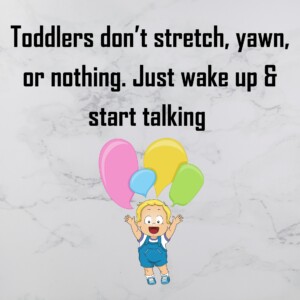
Communication plays a vital role in fostering healthy relationships between parents and children. Effective communication lays the foundation for understanding, trust, and connection. In this article, we present 10 essential tips to enhance your communication skills with your children, promoting open dialogue and strengthening your parent-child bond.

- Active Listening: Practice active listening by giving your full attention to your child when they speak. Maintain eye contact, nod in acknowledgment, and provide verbal cues to show that you are fully engaged in the conversation. This validates their feelings and encourages them to express themselves openly.
- Empathy and Understanding: Show empathy and understanding by putting yourself in your child’s shoes. Try to see things from their perspective and acknowledge their emotions. This helps create a safe space for them to share their thoughts and concerns without fear of judgment.
- Open and Non-judgmental Communication: Promote an open and non-judgmental atmosphere where your child feels comfortable expressing their thoughts and ideas. Avoid criticizing or belittling their opinions, even if you disagree. Foster an environment that encourages dialogue and respects their individuality.
- Use Clear and Age-Appropriate Language: Tailor your communication style to match your child’s age and comprehension level. Use clear and age-appropriate language, avoiding complex terms or jargon that may confuse them. Adapt your vocabulary and explanations to ensure effective communication.
- Encourage Expression of Feelings: Encourage your child to express their feelings openly. Help them label their emotions and validate their experiences. By doing so, you create a safe space for emotional expression and strengthen their emotional intelligence.
- Set Aside Quality Time: Allocate dedicated quality time for one-on-one conversations with your child. This can be during family meals, walks, or dedicated “talk time” sessions. By creating these opportunities, you demonstrate that you value their thoughts and opinions, fostering deeper connections.
- Be Mindful of Body Language: Pay attention to your own body language during conversations. Maintain an open posture, use appropriate facial expressions, and avoid crossing your arms, which can create barriers. Your non-verbal cues should convey openness and receptiveness.
- Problem-Solving Together: Involve your child in problem-solving discussions. Encourage them to brainstorm ideas and propose solutions. This promotes their autonomy and problem-solving skills while reinforcing their sense of being heard and valued.
- Practice Patience and Emotional Regulation: Communicating with children requires patience and emotional regulation. Stay calm and composed during challenging conversations, even if you feel frustrated or overwhelmed. Modeling emotional regulation helps children learn how to handle difficult emotions constructively.
- Celebrate Achievements and Efforts: Acknowledge and celebrate your child’s communication achievements and efforts. Encourage their growth and improvement, praising their ability to express themselves effectively. Positive reinforcement boosts their confidence and motivates continued growth in communication skills.
Effective communication is a powerful tool for building strong and trusting relationships with your children. By implementing these 10 essential tips, you can enhance your communication skills, foster understanding, and create an open and supportive environment where your children feel valued, heard, and respected.
As an Amazon Associate we earn from qualifying purchases through some links in our articles.



